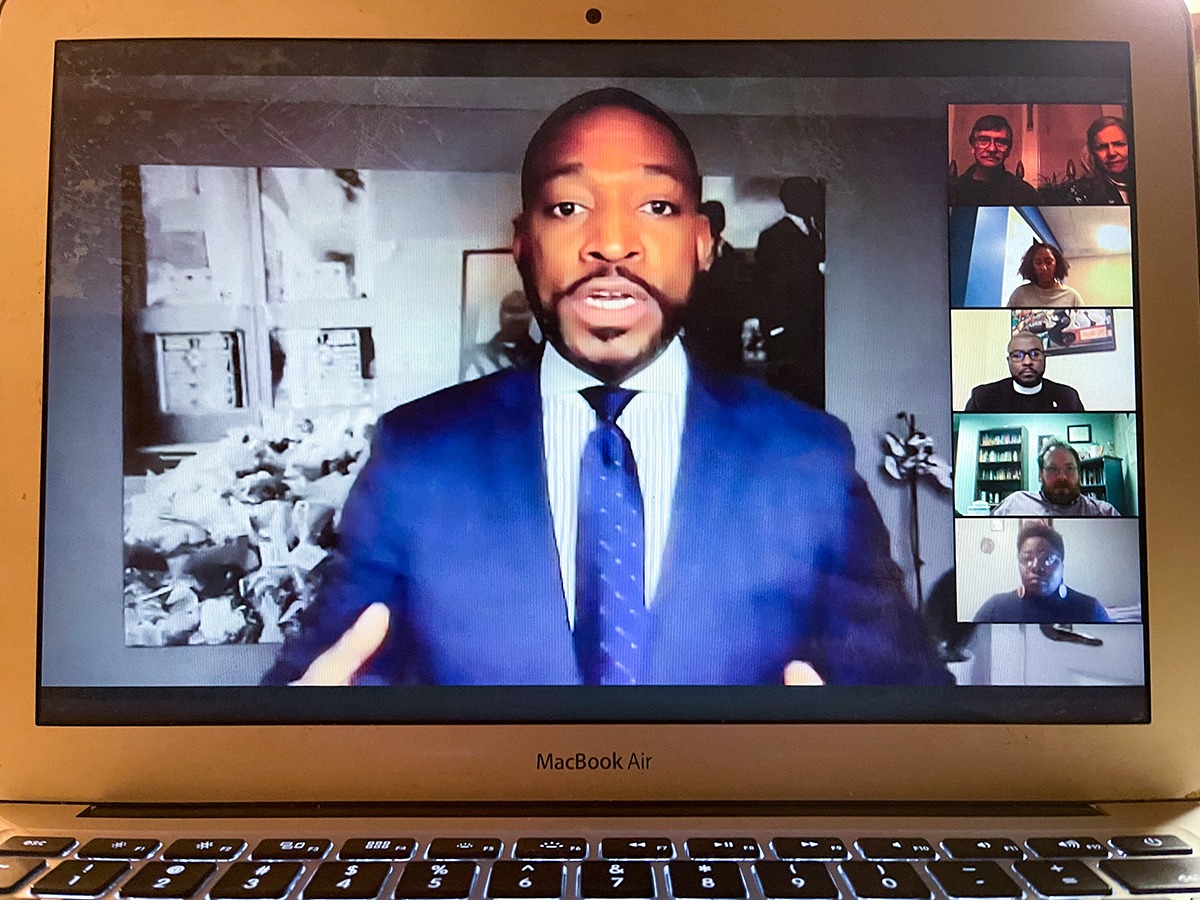MLK Day speaker encourages community to take heed, take action during virtual event at PC

Children’s Defense Fund leader, the Rev. Dr. Starsky Wilson, called for clarity for the future of civil rights in the United States during Presbyterian College’s annual Dr. Martin Luther King Jr. Day convocation.
Wilson, the president and chief executive officer of the CDF, spoke virtually at the event, giving an impassioned plea for people to ask themselves hard questions as the nation faces a reckoning over race relations.
Drawing inspiration from two books, the Old Testament Book of Esther and Taylor Branch’s At Canaan’s Edge, Wilson said King knew that he was being spied on by the government and treated as an enemy of the state.
“He was weary and trying to figure out his next steps,” he said.
Following what he believed to be a failed speech before the Southern Christian Leadership Conference a month later, King gathered his colleagues to decide what they would do next.
“He found himself in the place many of us find ourselves today – not knowing if we can hear the voice of God,” Wilson said.
While the U.S. Supreme Court strikes down vaccine mandates and lawmakers waffle on securing voting rights for all people, Wilson said people of color believe “the door is shut by those who have called us friends.”
But Wilson offered three suggestions inspired by the Book of Esther, which described the suffering of Jews in Persia facing racial hatred and calls for genocide. First, he said, we must remember Esther’s cousin Mordecai, who called on her to convince her husband, the king, to free her fellow Jews from oppression.
“Mordecai was committed to justice,” Wilson said. “Not like some people who only come around when Martin Luther King’s holiday gives them a long weekend.”
Mordecai, he added, was a forebear of the people who used to be the backbones of the faith communities – mothers, grandmothers, and pastors who were our spiritual ancestors.
Wilson also said we must consider our community when making our personal decisions. Mordecai evoked Queen Esther’s Jewish name – Hadassah – to remind her of her ethnic identity and use her influence to sway the king and save their people.
Wilson reminded PC students that they represent the hope of saving U.S. democracy because their generation is most likely to produce the country’s first multi-racial government.
When King was considering his next move in the Civil Rights Movement, he, too, looked at the future and turned his attention to the plight of poor children.
“Remember Mordecai, and you will find clarity,” Wilson said.
People also must consider the consequences of standing up to injustice and helping others.
Esther knew she was putting her own life on the line by revealing to her husband that she was a Jew. People today, said Wilson, make excuses that seeking justice is too dangerous and the costs are too high.
“The cost of making sacrifices is always too high,” said Wilson. But if people don’t make sacrifices to defeat injustice, then democracy isn’t the only thing the U.S. will lose.
“The future of civilization is on the line,” he said. “You can sit around on your hands if you want to be the next Hadassah.”
But Wilson said he believes God is making new opportunities for people to act even they are uncertain they are hearing God speak clearly to them.
“Even if you don’t hear God, remember Martin and remember Mordecai,” he said. “Leave yourself open to the answer and ask yourself, ‘what might I accomplish if I put my hand to the plow.’ Who knows? God knows?”
